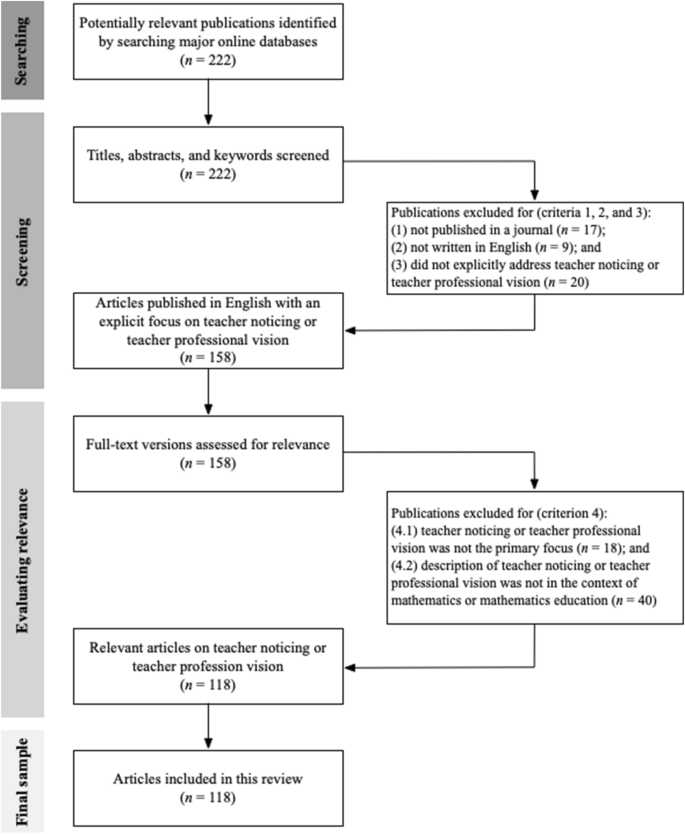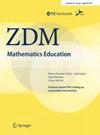Teacher noticing in mathematics education: a review of recent developments
IF 2.4
2区 教育学
Q2 EDUCATION & EDUCATIONAL RESEARCH
引用次数: 0
Abstract
Abstract The teacher noticing construct is widely recognized in teacher competence and education research, particularly in the field of mathematics education. This paper surveys recent research on mathematics teacher noticing published between July 2019 and 2022, following an earlier literature review on teacher noticing across different disciplines. The study presented here analyzed 118 English-language articles published in peer-reviewed journals, focusing on conceptualizations, research methods, and relationships with other constructs, including teacher knowledge and beliefs. The findings suggest that the cognitive-psychological perspective on noticing, which emphasizes a set of cognitive processes, remains the predominant conceptualization. Recent research on noticing is characterized by a high proportion of studies based on small samples and qualitative research methods. While several studies have demonstrated the interrelatedness of noticing and professional knowledge, the relationship between noticing and beliefs and between noticing and instructional quality has rarely been addressed. Based on these findings, we highlight noteworthy contributions and critical shortcomings, and suggest directions for future research.

数学教育中的教师注意:近期发展述评
摘要教师注意结构在教师能力和教育研究中,特别是在数学教育领域得到了广泛的认可。本文对2019年7月至2022年期间发表的关于数学教师注意的最新研究进行了调查,此前曾对不同学科的教师注意进行了文献综述。该研究分析了发表在同行评议期刊上的118篇英文文章,重点关注概念、研究方法以及与其他结构(包括教师知识和信念)的关系。研究结果表明,强调一系列认知过程的认知心理学观点仍然是主流。近年来关于注意的研究以小样本和定性研究方法为主。虽然一些研究已经证明了注意和专业知识之间的相互关系,但注意和信念之间的关系以及注意和教学质量之间的关系很少得到解决。基于这些发现,我们强调了值得注意的贡献和关键缺陷,并提出了未来研究的方向。
本文章由计算机程序翻译,如有差异,请以英文原文为准。
求助全文
约1分钟内获得全文
求助全文
来源期刊

Zdm-Mathematics Education
EDUCATION & EDUCATIONAL RESEARCH-
CiteScore
6.40
自引率
10.00%
发文量
124
期刊介绍:
ZDM – Mathematics Education is one of the oldest mathematics education research journals. The papers appearing in the seven themed issues per year are strictly by invitation only followed by internal peer review by the guest-editors and external review by invited experts. The journal exists to survey, discuss and extend current research-based and theoretical perspectives as well as to create a forum for critical analyses of issues within mathematics education. The audience is pre-dominantly mathematics education researchers around the world interested in current developments in the field.
 求助内容:
求助内容: 应助结果提醒方式:
应助结果提醒方式:


